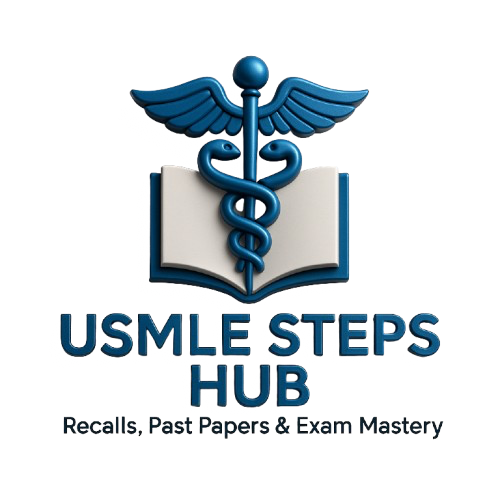Navigating the Path to USMLE Step 1: The Role of CBSE and NBME Exams
The journey to becoming a licensed physician in the United States is a long and arduous one, demanding years of dedicated study and preparation. For medical students, the USMLE Step 1 exam serves as a critical milestone, evaluating their grasp of fundamental medical knowledge. However, the road to success on the Step 1 is paved with numerous preparatory exams, including the often-discussed CBSE (Clinical Basic Science Exam) and NBME (National Board of Medical Examiners) assessments. This comprehensive guide will demystify these examinations, outline their significance, and provide valuable guidance for maximizing your preparation, all while addressing the growing interest in CBSE Recalls Premium Packages and real exam forms.
CBSE NBME Exam: An Overview
Before diving into the specifics of the CBSE and NBME exams, it is essential to understand their significance in the larger context of the USMLE Step 1. The Step 1 exam, administered by the National Board of Medical Examiners (NBME), is a standardized test that assesses a medical student's understanding of basic medical science principles. It is a crucial component of the USMLE (United States Medical Licensing Examination) and is a significant factor in determining a student's eligibility for residency programs.
The CBSE (Clinical Basic Science Exam), developed by the National Board of Osteopathic Medical Examiners (NBOME), is another standardized test that evaluates a student's understanding of basic medical sciences. It is not an official part of the USMLE but is commonly used as a practice exam to prepare for the Step 1. While the CBSE is primarily intended for osteopathic medical students, it is also popular among allopathic medical students as a supplementary study aid.
Features of CBSE NBME Exam
The CBSE and NBME exams both share similar features, as they are designed to assess a student's understanding of basic medical science principles. Here are some key features of the CBSE and NBME exams:
Content
Both exams cover the same core subjects, including anatomy, biochemistry, physiology, pathology, microbiology, pharmacology, and behavioral sciences. However, the CBSE also includes osteopathic principles and practices, while the NBME exam focuses on allopathic medicine.
Format
The CBSE consists of 200 multiple-choice questions, and the NBME exam has 280 multiple-choice questions. Both exams are divided into seven 1-hour blocks, with up to 40 questions per block. The questions are randomized, covering a wide range of topics in each block.
Timing
The CBSE is typically taken during the second year of medical school, while the NBME exam is usually taken closer to the Step 1 exam date. It is recommended to take the CBSE at least six months before the Step 1 to allow enough time for studying and addressing any weaknesses identified in the exam.
Who Will Use CBSE NBME Exam?
Both the CBSE and NBME exams are commonly used by medical students preparing for the USMLE Step 1. However, their use may vary depending on individual study plans and preferences.
For Osteopathic Medical Students
The CBSE is primarily intended for osteopathic medical students, as it covers osteopathic principles and practices. As such, it is an essential part of their preparation for the COMLEX (Comprehensive Osteopathic Medical Licensing Examination). However, many DO students also use the NBME exam as a supplementary practice test to prepare for the Step 1.
For Allopathic Medical Students
While the NBME exam is the official practice exam for the USMLE Step 1, many allopathic medical students also opt to take the CBSE as a supplementary practice test. This is because the CBSE covers similar content to the NBME exam and can provide additional practice and feedback.
For International Medical Graduates (IMGs)
International medical graduates (IMGs) who are planning to take the USMLE Step 1 may also find the CBSE and NBME exams useful in their preparation. These exams can help them gauge their understanding of basic medical principles and identify areas that may require further study.
How to Use CBSE NBME Exam
To get the most out of the CBSE and NBME exams, it is essential to have a solid study plan in place. Here are some tips for using these exams effectively:
Set a Baseline
The first step in using these exams is to take them as a baseline assessment of your knowledge and skills. This will help you identify your strengths and weaknesses, allowing you to focus on areas that require more attention.
Analyze Your Results
Once you have taken the exams, it is crucial to analyze your results thoroughly. Pay attention to which topics you performed well on and which ones you struggled with. This will help you prioritize your studying and focus on the areas that need the most improvement.
Incorporate Feedback into Your Study Plan
Both the CBSE and NBME exams provide detailed feedback on your performance, including your accuracy and time management. Use this feedback to adjust your study plan and address any weaknesses identified in the exam. Ace Your Preparation With OUR CBSE NBME PREMIUM RECALLS/REAL EXAM FORMS PACKAGE 2024-2025
Take the Exams Multiple Times
It is recommended to take both the CBSE and NBME exams multiple times during your preparation for the Step 1. This will help you track your progress and see how your knowledge and skills have improved over time. Ace Your Preparation With OUR CBSE NBME PREMIUM RECALLS/REAL EXAM FORMS PACKAGE 2024-2025
Pros and Cons of CBSE NBME Exam
Like any other exam, the CBSE and NBME exams have their advantages and disadvantages. Let's take a look at some of the pros and cons of using these exams as part of your Step 1 preparation.
Pros
- Provides a realistic assessment of your understanding of basic medical science principles.
- Helps identify areas that require further study.
- Allows for practice with the multiple-choice question format.
- Offers valuable feedback on your performance.
- Can be taken multiple times to track progress.
- Helps acclimate students to the timing and format of the USMLE Step 1.
Cons
- May not accurately reflect your performance on the actual Step 1 exam.
- Limited number of practice questions available.
- Does not cover all topics in the same depth as the Step 1 exam.
- May add additional stress and pressure to an already intense study schedule.
Opinions on CBSE NBME Exam
Opinions on the CBSE and NBME exams may vary among medical students. Some may find these exams to be extremely helpful in their preparation for the Step 1, while others may feel that they do not accurately reflect their performance on the actual exam. Here are some common opinions and perspectives on these exams:
- Many students find these exams to be an essential part of their Step 1 preparation, providing valuable feedback and practice.
- Some feel that the exams are too expensive and may not be worth the cost.
- Others believe that the exams do not reflect the difficulty level or content of the actual Step 1 exam.
- Some students feel that the exams are a helpful tool for identifying weaknesses and reinforcing key concepts.
It is essential to remember that everyone's experience may be different, and what works for one student may not work for another. It is crucial to use these exams as just one piece of your overall study plan and to not rely solely on them for your Step 1 preparation. Ace Your Preparation With OUR CBSE NBME PREMIUM RECALLS/REAL EXAM FORMS PACKAGE 2024-2025
Examples of CBSE NBME Exam
To give you a better idea of what to expect on the CBSE and NBME exams, here are some examples of practice questions from each exam:
CBSE Example Question
Which of the following mediates the breakdown of glycogen in liver and muscle?
- Insulin
- Glucagon
- Epinephrine
- Cortisol
Correct Answer: C. Epinephrine
NBME Example Question
A 2-year-old boy presents with fever, irritability, and altered mental status. On physical examination, he has a diffuse petechial rash, nuchal rigidity, and hepatosplenomegaly. A lumbar puncture reveals increased protein and decreased glucose levels. What is the most likely diagnosis?
- Meningitis
- Encephalitis
- Septicemia
- Idiopathic thrombocytopenic purpura (ITP)
Correct Answer: C. Septicemia
The Price of CBSE NBME Exam
The cost of taking the CBSE and NBME exams may vary depending on your medical school or testing center. However, the average cost of the CBSE exam is around $60, while the NBME exam costs around $60 for each form. It is essential to check with your school or testing center for the exact pricing and any additional fees. Ace Your Preparation With OUR CBSE NBME PREMIUM RECALLS/REAL EXAM FORMS PACKAGE 2024-2025
5 FAQs about CBSE NBME Exam
- How many times can I take the CBSE or NBME exams?
- There is no limit to the number of times you can take these exams. However, it is recommended to take them only a few times during your Step 1 preparation to track progress.
- Can I use CBSE and NBME exams for my COMLEX preparation as an osteopathic medical student?
- Yes, the CBSE exam is specifically designed for osteopathic medical students and is a helpful tool for COMLEX preparation.
- Are the questions on the CBSE and NBME exams similar to the questions on the actual Step 1 exam?
- While the questions may cover similar topics, the actual Step 1 exam may have a different format and level of difficulty.
- Can I access my CBSE and NBME practice scores after taking the exams?
- Yes, you can view your scores and performance analysis for both the CBSE and NBME exams online.
- How long should I study before taking the CBSE and NBME exams?
- It is recommended to take the CBSE at least six months before the Step 1 exam date to allow enough time for studying and addressing any weaknesses identified in the exam. Ace Your Preparation With OUR CBSE NBME PREMIUM RECALLS/REAL EXAM FORMS PACKAGE 2024-2025
Conclusion
The CBSE and NBME exams are essential preparatory tools for medical students preparing for the USMLE Step 1. They provide valuable feedback and practice with the multiple-choice question format, helping students identify their strengths and weaknesses. While these exams may not accurately reflect one's performance on the actual Step 1 exam, they can be a helpful supplement to traditional study methods. To make the most out of these exams, it is crucial to use them as part of a comprehensive study plan and not rely solely on them for Step 1 preparation. With proper utilization, the CBSE and NBME exams can serve as valuable assets in your journey to becoming a licensed physician in the United States. Ace Your Preparation With OUR CBSE NBME PREMIUM RECALLS/REAL EXAM FORMS PACKAGE 2024-2025

